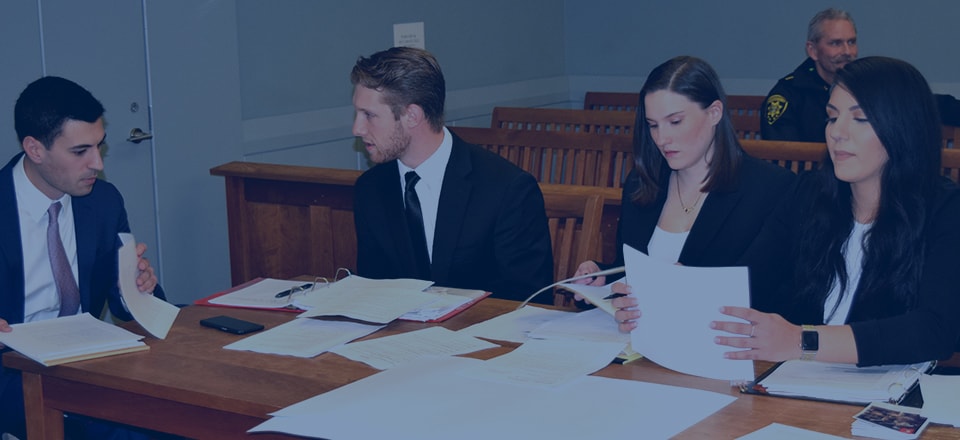Volume 1 - August 2006
Journal RGE
Journal of Race, Gender, and Ethnicity
Volume 1 - August 2006
Editorial Board & Staff 2005-2006
|
Table of Contents: |
|
|
Lenka L. Richards, Foreword |
1-3 |
|
This foreword is a letter by the founding Editor-in-Chief of the Journal of Race, Gender, and Ethnicity. It introduces the Journal and details the effort that was necessary to develop a new law journal. |
|
Affirmative Action in Law Schools – Spring 2005 Symposium |
|
|
Richard H. Sander, A Summary of "Systemic Analysis" |
4-20 |
|
The purpose of this piece is to provide a short summary of the author’s work on affirmative action and his comments at the Affirmative Action in Law Schools Symposium held at Touro Law Center in the spring of 2005. This summary is adapted from a series of columns written for the "Volokh Conspiracy" last November and this past June, which outlined the arguments of the main article as well as the single most interesting follow-up finding from his work this year. In the final sections the author refers to readers of the columns who sent in comments. |
|
|
Douglas D. Scherer, Response to Professor Sander |
21-26 |
|
The purpose of this piece is to reply to and comment on remarks made by Richard Sander at the Affirmative Action in Law Schools Symposium held at Touro Law Center in the spring of 2005. The author presents alternative views to Mr. Sander’s claims of the seeming underperformance by African American students at most American law schools. He concludes by giving consideration to what can be done to remedy the problem. |
|
Student-Written Piece From the Symposium |
|
|
Anupama Ramlackhan, Academic Assistance Programs for Minority Law Students |
27-36 |
|
The purpose of this article is to clarify the necessity of academic assistance programs in law schools in order to promote equality in legal education and the legal profession. First, the article reviews the barriers that minority students have faced in order to gain admission to law school and the barriers that remain after entrance. Second, the article discusses the creation of academic assistance programs, focusing on the goals of the programs, the criticism of the implementation of such programs and the particular contributions and benefits that warrant their existence. Lastly, the article defends the programs against criticisms by enumerating their advantages. |
|
Articles |
|
|
Lewis A. Silverman, Same-Sex Marriage in New York |
37-50 |
|
The author explores the current and future legal status of same-sex marriages in New York. He then goes on to discuss whether New York will recognize the validity of same-sex marriages performed in other jurisdictions. The author cautions, however, that both the legal climate as well as the social climate are constantly changing and the information provided today may quickly become untimely. |
|
|
Joseph Prud'homme, Federal Employment Law: Current Problems and a Call for Reform |
51-109 |
|
The author reaffirms the importance of women’s rights to equal opportunity and acknowledges the progress that has been made to advance these important rights through the passage of federal statutes. He further assesses the degree of success that these statutes have achieved and acknowledges the many obstacles that still confront women in the American workplace. The author concludes that the current ability to advance women’s rights in the workforce through federal statutes is rather weak, both in terms of the rights afforded private plaintiffs and in terms of the effect that individual cases have on women in the workplace. He further opines that a genuine problem exists concerning the stability and institutional efficacy of legal protections for gender rights. The author offers solutions to correct the weakness in the protection of gender rights. |
|
Student-Written Pieces |
|
|
Patrick A. McGlashan, Comment, School Finance Litigation: The History and Its Current Status in New York |
110-130 |
|
This comment presents the history of school finance litigation recounting the progress and the setbacks. In addition, the comment examines the New York Court of Appeals decision in Campaign for Fiscal Equity v. State of New York. The author concludes with a look at what happened in the aftermath of this historic decision. |
|
|
Stephanie Adduci, Sexually Violent Predator Legislation and the Sexual Psychopath Act: Will New York “Police” it's Sexual Predators via Civil Commitment? |
131-144 |
|
This paper explores the likelihood that New York will adopt a form of Sexually Violent Predator (SVP) legislation allowing for civil commitment of sexually violent predators. Based upon an analysis of the general and state specific policies of SVP legislation and its precursor, the Sexual Psychopath Act, as well as a brief analysis of controversial cases on the matter the author concludes that New York will likely adopt SVP legislation. |
|

